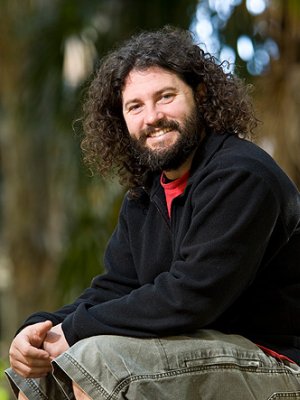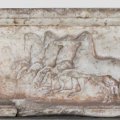
When The University of Queensland PhD student Mike Imelfort explains his research in a complicated field of DNA to friends at a party, he can do it in very few words.
What helped him cut out all the jargon and complicated details was his involvement and subsequent win last year in a UQ competition called The Three Minute Thesis.
The competition aims to help students explain their studies in a succinct and compelling way so an average audience without technical skills can understand.
Since his win in the inaugural competition, Mr Imelfort has travelled the world catching up with experts in his field of studies.
Now, UQ is about to do it all again with a new field of PhD students asked to explain their area of expertise in three minutes.
Heats from the various schools will be wrapped up by September 8 as the competition moves to the business end.
It will culminate with the Three Minute Thesis Final on September 21. The winner and runner-up will also present their Three Minute Thesis at an industry dinner at Customs House on September 24, as part of Research Week.
Mr Imelfort said explaining his studies used to be hard, given the thesis was called The Development and Application of Bioinformatics and Statistical Tools for the Assembly and Analysis of Plant Genome Sequence Data.
But it became easier when it came time to put together his presentation for The Three Minute Thesis.
“I am the only one in my family to do a research higher degree at uni. I kept picturing I was talking to my mum and dad. They would lose interest very quickly if I got too technical,’’ Mr Imelfort said.
“Once I had written it up, I tried it out on my sisters. They are not scientists. I kept it simple and kept it focused on one central point.”
That central point was the single overhead slide allowed in the competition, showing a jigsaw puzzle to represent the assembly of short-read DNA sequence data which was at the centre of Mr Imelfort’s research.
“I have done a lot of tutoring. I am used to speaking to people. I wanted to see if I could do it for the Three Minute Thesis,” he said.
“I think that people think they are not good at maths and it is all beyond them. I give them some understanding and try to get them up to speed. Then they can walk away feeling they have learned something.”
Mr Imelfort said he did not expect to win last year’s competition, but said it was “awesome” to come out on top. He used the $5000 international travel grant winner’s prize to travel to a conference in Stockholm, Sweden and catch up with experts in the field of molecular biology.
Visit www.uq.edu.au/grad-school/three-minute-thesis
Media:Tony Miscamble (3365 8846) or Erik de Wit (3346 7086, 0417 496 397)
.jpg)



